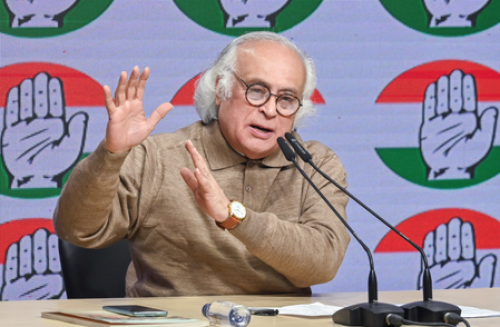DR. BIREN NADKARNI New Delhi, Feb 21 (IANSlife) Knee pain can be painful and chronic. Your mobility is hampered, and your mood is significantly impacted. Knee pain management is substantially more challenging in the winter. The sudden drop in barometric pressure brought on by the change in ambient temperature can occasionally cause joints to swell. Pain sometimes has the power to literally bring you to your knees. When knee pain interferes with your daily activities, it's time to look into your options to make sure you can stay active. While non-surgical approaches are frequently tried as a first line of defense, there are situations where knee surgery is advised or required. Here are some of the most popular non-surgical and surgical treatment options for knee pain: Non-Surgical Options such as: NSAIDs Non-steroidal anti-inflammatory drugs are also commonly known as pain relievers that are typically the first step in treating knee pain. NSAIDs which are both over-the-counter and on prescription, can lessen inflammation and block discomfort. It can provide much-needed relief while you recover or investigate other treatment choices, even though this is not a long-term answer Injections Another effective treatment for knee discomfort is injection therapy. The injections frequently contain steroids or anti-inflammatory drugs that temporarily relieve symptoms. Steroid injections are quick-acting medical therapy that may help prevent pain attacks. Hyaluronic acid, lubricants, and anti-inflammatory medications are frequently combined in anti-inflammatory injections. Treatment with Platelet-Rich Plasma (PRP) For a while now, this technique has become more and more popular for treating joint issues and sports injuries. A patient's blood is used to inject platelet-rich plasma into the injured area. Blood molecules called platelets are responsible for clotting and promoting healing. PRP therapy temporarily inflames the area, which prompts the body's natural healing processes to work their magic and cure the painful knee. Bracing A knee brace is intended to give the knee joint external stability. Braces are made to strengthen the knee muscles, stabilise a joint, and relieve discomfort and inflammation. The brace realigns the joint by applying pressure to its sides, which lessens friction between the two rough bone surfaces, lessens pain, and improves mobility. Physical Therapy Physical therapy can be used as a treatment for knee pain. Under the direction of a physical therapist, this entails doing a range of stretches and exercises to strengthen the knee and the surrounding muscles. You will engage in a variety of stretches and exercises, receive massage therapy, and more to promote healing, build muscle, increase flexibility, lessen stiffness, and improve mobility. Lifestyle modifications Depending on the state of your knees, you might need to make some lifestyle modifications to your daily routine, such as reducing your weight, staying away from strenuous activities like running, and engaging in low-impact exercise to relieve stress. You might also need to make dietary changes to help you deal with the pain. Surgical Treatment Options such as: Total Knee Replacement Surgery If non-surgical treatments are unsuccessful for you, your doctor can suggest a total knee replacement if the problem is a worn-out knee joint. Damaged joint components are removed and replaced with artificial components that simulate the joint's future functionality. Partial Knee Replacement Surgery This procedure, also known as unicompartmental knee arthroplasty, replaces one of the three compartments of the knee. These could be the patellofemoral, medial, and lateral areas. Through this process, an arthritic damaged compartment is treated while the healthy ones are spared. Unicompartmental knee surgery is less intrusive and recovers more quickly than complete replacement. Arthroscopic Procedures A surgical and diagnostic procedure is arthroscopic surgery. This operation aids in the identification and treatment of knee discomfort. In order to pinpoint and intensify the source of the knee pain, your doctor will inject a camera-carrying tube into the joint. If repairs are required, they can probably be made while the surgery is being performed. Arthroscopy can be used to mend torn ligaments, remove loose objects from your knee joint, and remove or replace damaged cartilage (particularly if it is the cause of your knee locking). Osteotomy This less invasive method is suitable for physically active people who have uneven wear and tear from misaligned knees. To restore pressure to the other side of the joint, the surgeon will clip the shin or thigh bone. An osteotomy's main objective is to stop knee osteoarthritis from progressing further. A good osteotomy may delay the need for additional surgical knee replacement procedures. Dr Biren Nadkarni advised that "your options for treating knee pain might be as varied as its causes. Do not be reluctant to contact a trusted Orthopedic Surgeon to determine which one would best meet your orthopedic needs." (DR. BIREN NADKARNI, is Consultant Orthopedic and Joint Replacement surgeon at Sitaram Bhartia Institute and Holy Family Hospital, New Delhi) (IANSlife can be contacted at ianslife@ians.in)
Are there any surgical and non surgical knee pain treatment options?
- by Rinku
- February 22, 2023 2 minutes

Are there any Surgical and Non Surgical knee pain treatment options?.(photo:IANSLIFE)










